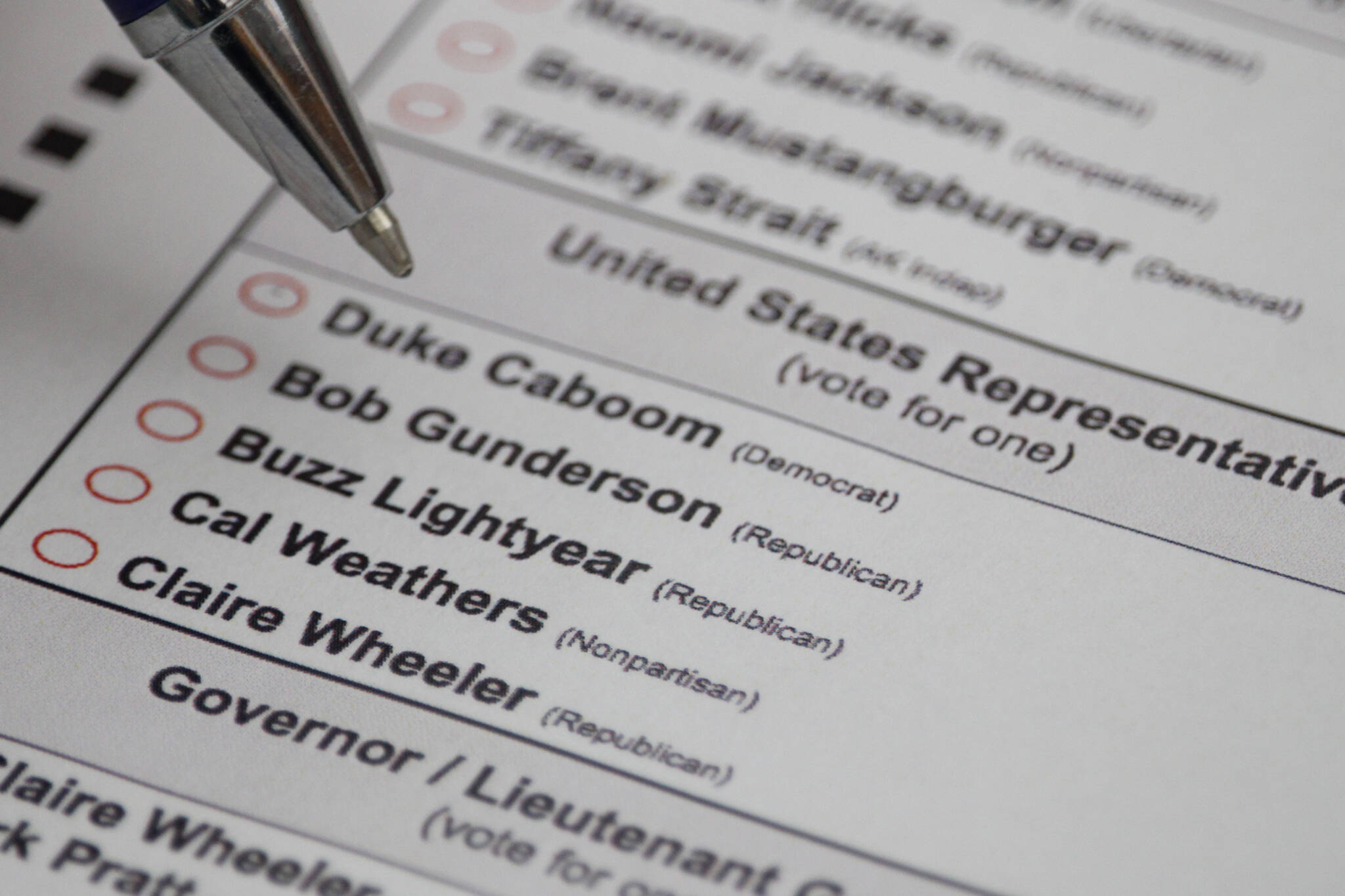The doors are officially open for candidates to submit their names for the special election to fill Alaska’s lone seat in the U.S. House of Representatives after Gov. Mike Dunleavy issued a proclamation Wednesday setting the dates for the election.
The special election follows the death last week of Don Young who represented Alaska for over four decades in the House. Young was the longest-serving Republican representative and will lie in the U.S. Capitol on March 29.
Officials from the Division of Elections laid out plans for the special election Tuesday and the governor’s proclamation made those plans official and allows candidates to file for office. The deadline to file for the special election is 5 p.m. on April 1.
According to the proclamation, a special primary election will be held Saturday, June 11, and the special general election on Tuesday, Aug. 16. DOE officials announced Tuesday the primary election would be conducted primarily by mail, and the special general election will take place the same day as the primary for the regular November election, with both elections appearing on the same ballot.
The special election is only to elect an immediate replacement for Young while the regular November election will choose who will serve the next full term as Alaska’s lone Representative at large. The filing deadline for candidates in the regular November election is June 1.
[Dates set for race to fill House seat]
Candidates Nick Begich III, a Republican, and Democrat Christopher Constant who were already running to unseat Young have confirmed they’ll run in the special election as well. Political blog the Alaska Landmine reported state Sen. Josh Revak, R-Anchorage, — who previously worked in Young’s office — is planning to run for the seat and national publication The Hill reported former U.S. Senate candidate Al Gross is running as well. Both Revak and Gross did not immediately respond to messages seeking comment.
Lt. Gov. Kevin Meyer, who oversees DOE, told reporters Tuesday the state was working under a number of time constraints and well as implementing the state’s new ranked-choice voting system. Alaska’s new voting laws require a primary followed by a ranked-choice election with the top four vote-getters from the primary.
When Alaskans go to the polls on Aug. 16, they have one ballot for two elections, Meyer said; the special general election and the regular primary election. Because the two are separate elections, Meyer said candidates can run in both elections so Alaskans will likely see the same candidates for both elections.
DOE Director Gail Fenumiai said the division decided to hold the special primary election most by mail out of concern not enough staff to be hired for an in-person election on such short notice. Additionally, the state’s voting districts are currently undetermined, as the state’s once-a-decade redistricting process is being litigated in the Alaska Supreme Court. Chief Justice Daniel Winfree said the court would have a decision by April 1.
Additional information on the special elections and ranked-choice voting can be found at DOE’s website, elections.alaska.gov.
• Contact reporter Peter Segall at psegall@juneauempire.com. Follow him on Twitter at @SegallJnuEmpire.

